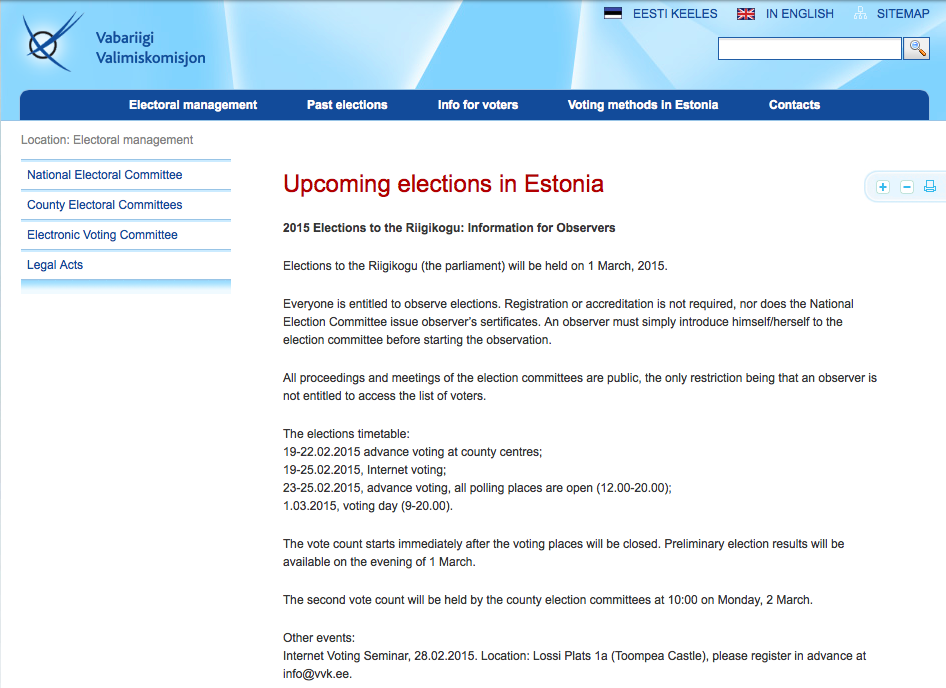The word ‘agitator' (agitaator) was a familiar term in the Soviet elections lexicon. Agitators (yes, that's how they were officially designated) had the responsibility to maximize voter participation in Soviet elections.
Through any means possible, whether by threatening or cajoling, agitators had to produce a 99.9% voter turnout as demanded by the party. To achieve the nearly impossible 99.9% participation level, election organizers were allowed to remove the names off the list of those who didn't show up to vote. Voter enthusiasm was difficult to muster. Ballots contained only one name. Election results were inevitable. In fact on occasion, results were published before the ballots were counted.
Maximizing voter participation by cajoling or coercing the elector is a practice that is unacceptable
Voting during the Soviet occupation was undeniably an undisguised farce and consequently voters felt alienated from the electoral process. Perhaps a similar detachment with the process can be compared with the apathy of the voter today. “My one vote has no bearing on the outcome,” is the typically common answer given when asked why someone failed to vote here, abroad, during Estonia's parliamentary elections.
It might be radical to imply that the non-voter doesn't believe in democracy. But the low voter turnout (perhaps some five times lower than 20 years ago) amongst voters abroad seems to suggest that we don't support democracies. In a democracy, the majority rules. By not voting, the majority, by default, is voting against the election.
Yeah, the jaded will inevitably comment, “Why bother voting, government policy will be dictated by those that fill the party coffers anyway.” Yes, the non-voters, by abrogating their rights and duties, leave the field wide open to those who have political influence through financial clout and to those who have no interest in Estonian culture, language, the country's national security etc.
The latter has become a genuine issue since Russian aggression against Ukraine is seen by many as a possible scenario in the future. In fact some members of the leadership of the Centre Party have not condemned the Russian annexation of Crimea and military intrusion in eastern Ukraine. They have called for an end to the Western sanctions against Moscow. By not casting one's vote the clout of the ‘anti-Estonian' vote is strengthened substantially.
You have the right to express your opinion at the ballot box. In a democracy, this right comes with the RESPONSIBILITY to participate and contribute. This right has been given to you by the freely elected parliament of Estonia. They expect you to understand that it's your duty to use it. NOT VOTING IS A VOTE AGAINST DEMOCRACY!
The non-voter is not without his time-worn reasons for avoiding the ballot box: I don't know the choices; I don't know the issues; I live here and don't pay any taxes in Estonia. The excuses are weak and unacceptable. We all have access to the Internet. The choices and issues are there to be read in both Estonian and English. A chat with an informed friend also gives sufficient information to make an informed choice.
Estonian law says that all electors can vote, irrespective of their country of residence or their payment/non-payment of state taxes. About 50% of democratic countries invite voters abroad to participate at elections and provide the means for them to do so. It's time to start thinking about the vote. For comprehensive information in Estonian, English or Russian on voting abroad visit www.vvk.ee.
Laas Leivat




